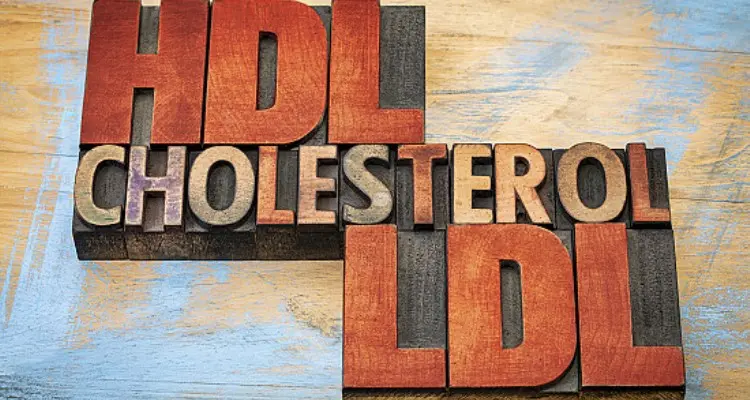Low-density lipoprotein (LDL), commonly referred to as “bad” cholesterol, is an essential biomolecule involved in the transportation of lipids across the body.
While it is a necessary element for the proper functioning of our bodies, an elevated LDL cholesterol level is known to increase the risk of developing cardiovascular diseases, including heart attack and stroke. Therefore, understanding the normal range of LDL cholesterol and ways to manage it is crucial for maintaining heart health.
1. LDL Cholesterol: The “Bad” Cholesterol
Our bodies need cholesterol to synthesize hormones, vitamin D, and compounds that aid digestion. While the body, particularly the liver, produces all the cholesterol we need, we also get some from the foods we eat, especially animal products.
Also Read
Cholesterol doesn’t dissolve in blood, so it needs to be carried to and from cells by carriers known as lipoproteins. Of these, low-density lipoprotein, or LDL, and high-density lipoprotein, or HDL, are the most significant. LDL is often termed “bad cholesterol” because it carries cholesterol particles throughout the body and can lead to fatty deposits, or plaques, in the arteries — a condition known as atherosclerosis.
2. Normal Range for LDL Cholesterol
The normal range for LDL cholesterol can vary depending on various factors, including age, sex, and overall health. Generally, according to the American Heart Association (AHA) and other health authorities as of my last training cut-off in September 2021, LDL cholesterol levels are typically categorized as follows:
- Optimal: Less than 100 mg/dL
- Near optimal: 100-129 mg/dL
- Borderline high: 130-159 mg/dL
- High: 160-189 mg/dL
- Very high: 190 mg/dL and above
For individuals with existing heart disease, diabetes, or other significant risk factors, the ideal LDL level may be even lower. Health professionals might aim for an LDL cholesterol level of less than 70 mg/dL in these cases.
3. Factors Affecting LDL Cholesterol Levels
Several factors can affect your LDL cholesterol levels. Genetic factors can play a significant role; you can inherit genes from your parents that cause you to have high cholesterol. Age and sex also have a part; as we get older, cholesterol levels tend to rise. Men generally have higher levels of LDL cholesterol than women before age 55-60, but after menopause, women’s LDL levels often rise.
Lifestyle factors also significantly impact LDL cholesterol levels. A diet high in saturated and trans fats, lack of physical activity, obesity, and smoking can all contribute to raised LDL cholesterol. Other medical conditions, such as diabetes, high blood pressure, and certain thyroid conditions, can also elevate LDL cholesterol levels.
4. Managing LDL Cholesterol Levels
1. Lifestyle Changes
Lifestyle modifications are often the first line of defense. These include:
- Diet: Embrace a diet rich in vegetables, fruits, whole grains, and lean proteins. Limit the intake of saturated fats found in red meat and full-fat dairy products. Avoid trans fats present in many processed foods.
- Exercise: Regular physical activity can help raise high-density lipoprotein (HDL), the “good” cholesterol, while lowering your LDL level.
- Weight Management: If you’re overweight, losing even a few pounds can lower LDL levels.
- Avoid tobacco smoke and limit alcohol: Smoking lowers your good cholesterol, raises your bad cholesterol and your blood pressure, making you more likely to have heart disease. Excessive drinking can lead to high blood pressure and heart failure, among other conditions.
2. Medication
When lifestyle changes are insufficient, or if you have a high risk of heart disease, your doctor may prescribe medications to help lower your LDL cholesterol. These can include statins, bile acid binding resins, cholesterol absorption inhibitors, and more. Remember, these medications should be taken as prescribed and usually need to be taken long-term for them to remain effective.
Conclusion
LDL cholesterol is a critical factor in heart health, and understanding the normal range and the potential risks of high levels is crucial for preventative health care. By maintaining an optimal LDL cholesterol level, individuals can significantly reduce their risk of developing serious cardiovascular conditions.
Regular check-ups, a healthy diet, consistent exercise, and potentially cholesterol-lowering medications can all contribute to keeping LDL cholesterol levels in the normal range and promoting heart health.














